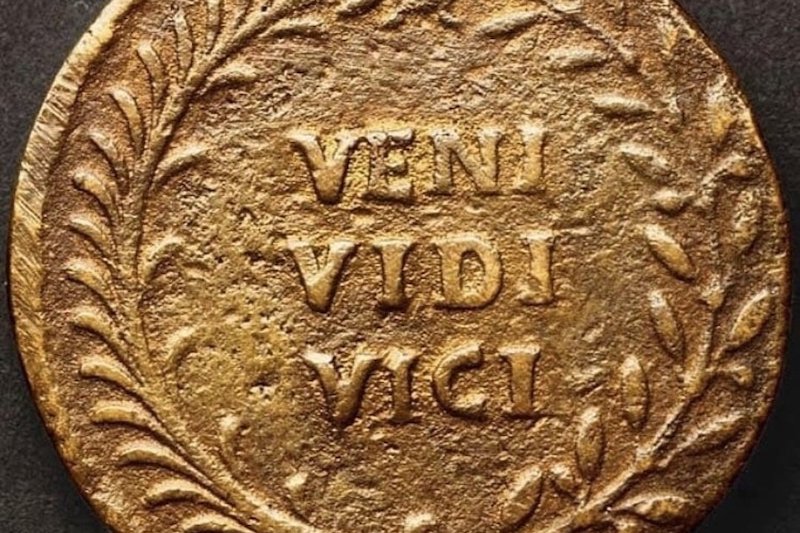‘Veni, vidi, vici’: Story behind Julius Caesar’s declaration in Türkiye
 Portrait head of Julius Caesar and his famous quote. (Photo via iStock)
Portrait head of Julius Caesar and his famous quote. (Photo via iStock)
The Türkiye’s Zile Castle, located in Tokat Province, is the historic site where Roman leader Julius Caesar reportedly declared “Veni, vidi, vici” (I came, I saw, I conquered) after his victory over King Pharnaces II of Bosphorus.
This remarkable site attracts thousands of visitors each year, drawn by its rich history and significance.

Glimpse into Zile’s history
Situated 62 kilometers (38.53 miles) from Tokat, Zile is a district with a population of 54,368. It has hosted various civilizations throughout history, adopting several names over the years, including Zela, Zelitis, Anzila and Silas, before settling on Zile.
The town is renowned for its cultural heritage, with Zile Castle being one of its most significant historical landmarks. This castle, known as the only “dolma” castle in Anatolia, is a focal point for tourists visiting Tokat.
It is believed to have been built around 4,000 years ago under the orders of Semarus, the wife of an Assyrian king. From the castle, visitors can enjoy panoramic views of the surrounding area.


Historic encounter: Julius Caesar in Zile
In 47 B.C., Julius Caesar made his first visit to Anatolia, where he engaged in battle with King Pharnaces II of Bosporus at the Battle of Zela. Following a decisive victory, Caesar famously announced his triumph to Rome with the phrase “Veni, vidi, vici.”
The castle, a remnant of Caesar’s era, features a small theater, clock tower and tunnel carved from ancient stones.

Inscription and its significance
To commemorate his victory, Caesar commissioned a stone inscription at the Pompeii Castle, inscribing his famous words there as well. Today, numerous tourists flock to the district to view these inscriptions.
However, some historians argue that the original inscription created by Caesar has been lost while confirming that his famous words are recorded in various sources as having been said in Zile. Furthermore, many ancient artifacts excavated from the Yildiztepe village in Zile bear the inscription “Veni-vidi-vici.”


Cultural impact and modern usage
The phrase “Veni, vidi, vici” has transcended its historical context, becoming a popular term in social competition and business environments. It is often humorously referenced by executives who successfully secure profitable deals.
The phrase has also found its way into popular culture, appearing in various television programs and music across different genres, further cementing its status in contemporary language.



